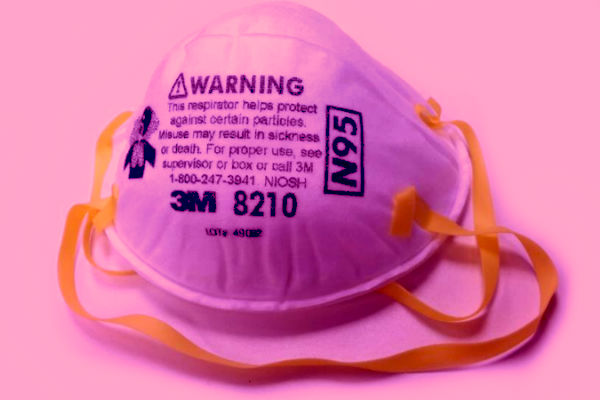 Since the start of the COVID-19 crisis, legislators have worried about the availability of protective gear for those on the frontlines. Consumers have even started making masks at home to help offset the number of masks being reserved for those who need them most.
Since the start of the COVID-19 crisis, legislators have worried about the availability of protective gear for those on the frontlines. Consumers have even started making masks at home to help offset the number of masks being reserved for those who need them most.
Now, researchers at the American Chemical Society believe they have found an easy way for consumers to reuse N95 medical-grade masks: heating. Their study found that heating the masks after each use can disinfect them for up to 50 wears.
“The coronavirus disease 2019 the COVID-19 crisis, legislators has led to a major shortage of N95 respirators, which are essential for protecting healthcare professionals and the general public who may come into contact with the virus,” the researchers wrote. “Thus, it is essential to determine how we can reuse respirators and other personal protective equipment in these urgent times.”
Sustainable protection
The Centers for Disease Control and Prevention (CDC) have outlined several strategies for consumers to disinfect their N95 masks, but the researchers say none of them have really been put to the test.
For this study, the researchers explored a few of these strategies to see which would work best for medical workers. They experimented with bleach treatment, steam, heating, and UV exposure.
The researchers used each disinfectant method on pieces of an N95 mask and tested how effective the mask was at filtering out particles both before and after the sanitizing process.
Ultimately, heating the mask proved to be the best option for reuse. While the researchers worry about how excessive wear could affect the shape and fit of the mask, heating the mask for 20 minutes at 185 degrees Fahrenheit was effective. According to the study, consumers could do this process up to 50 times and still be adequately protected by the N95 mask reports Consumer Affairs.
The researchers also learned that UV exposure, bleach treatments, and steam treatments were ineffective options for disinfecting the N95 mask, as none of the masks could withstand the long-term nature of such efforts.
The researchers found that the mask wouldn’t hold up under the highest UV conditions necessary to kill germs, whereas one single trial of bleach and ethanol greatly reduced the protective quality of the mask. Similarly, the steam treatment became ineffective by the fifth trial, at which point the wearer would get no protective benefits.
Disinfecting masks can be a tricky process. As the researchers explained, the ultimate goal is always protecting the wearer. These findings could ease the burden for medical professionals facing a shortage of protective equipment.
Harlem World Magazine has some of the best ones here.
Become a Harlem Insider!
By submitting this form, you are consenting to receive marketing emails from: . You can revoke your consent to receive emails at any time by using the SafeUnsubscribe® link, found at the bottom of every email. Emails are serviced by Constant Contact








